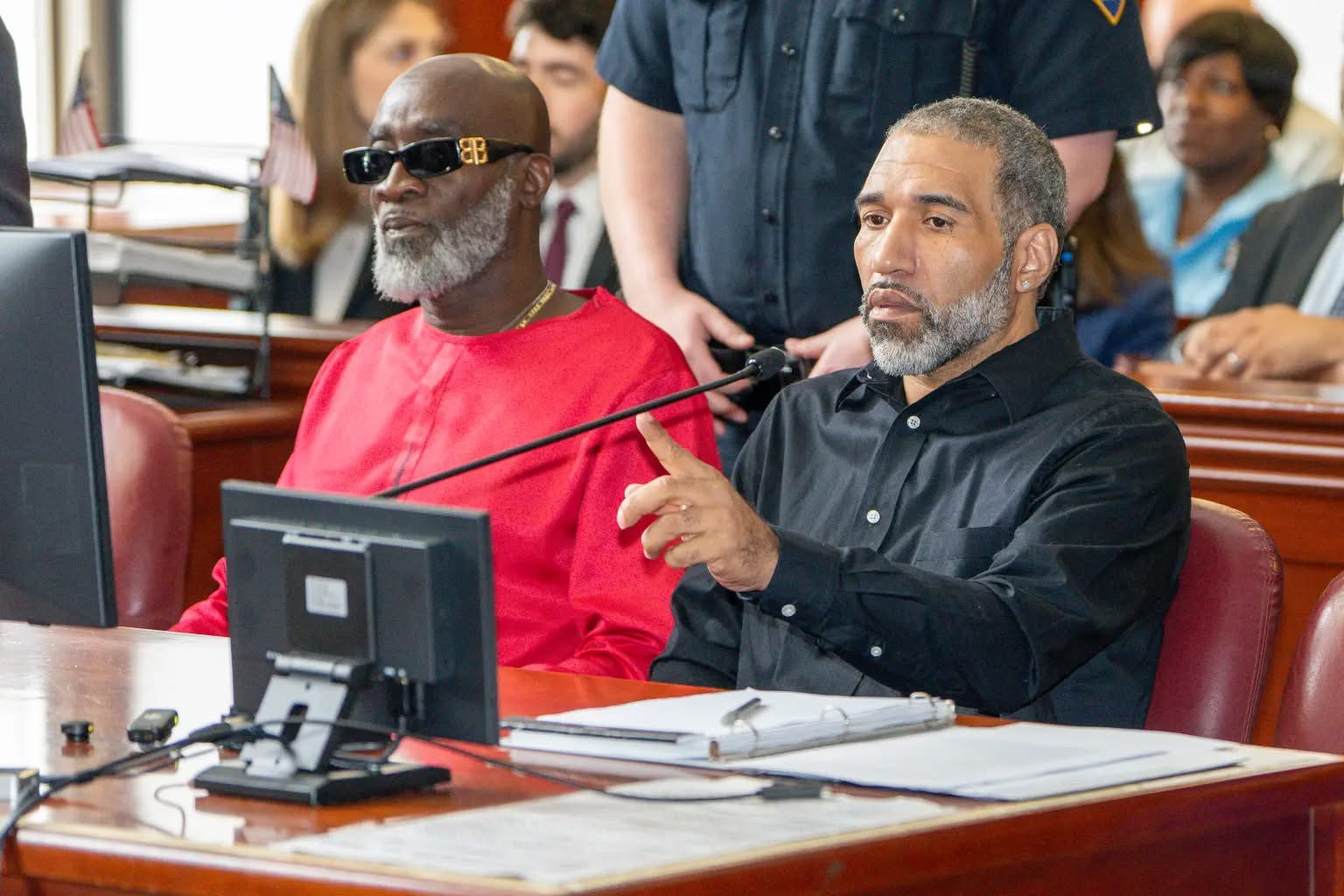After decades of wrongful imprisonment, Charles Collins, 49, and Brian Boles, 48, are finally free men — officially cleared of a crime they never committed. The two were wrongfully convicted in 1994 for a murder in New York, a conviction built entirely on coerced confessions and suppressed evidence.
Their exoneration marks not only a personal triumph, but also a damning reminder of the flaws within the criminal justice system.
A Broken System, A Tragic Injustice
Brian Boles was just 17 years old when his nightmare began. Interrogated without a parent, guardian, or lawyer present, Brian endured hours of psychological pressure, threats, and sleep deprivation at the hands of law enforcement. Eventually, he gave a false confession — a confession that would become the cornerstone of the prosecution’s case.
Charles Collins, then 18, was arrested shortly after, accused of being Brian’s accomplice. Like Brian, Charles was convicted despite no physical evidence linking him to the crime. The prosecution leaned entirely on the confessions, despite inconsistencies and a glaring lack of corroborating proof.
The system failed them both.
Buried Evidence and the Truth Revealed
For years, Brian and Charles maintained their innocence. Advocates, legal teams, and innocence projects continued to push for a fresh look at the case. Finally, in 2025, critical breakthroughs emerged.
New DNA testing, previously unavailable in the 1990s, revealed that DNA found under the victim’s fingernails did not match either Brian or Charles. Instead, it belonged to an entirely different, unidentified person.
Even more damning was the discovery of withheld police reports — evidence that had been buried for decades. These documents showed that witnesses saw the victim alive hours after the time Brian allegedly confessed to committing the murder. Had this been revealed at trial, it could have changed the outcome entirely.
Instead, two young men lost their freedom, families, and futures to a justice system more concerned with closing a case than uncovering the truth.
A New Beginning After Decades of Loss
After 30 years, a judge officially vacated the convictions, apologizing to both men and acknowledging the grave miscarriage of justice. Charles Collins served 23 years before being released on parole, while Brian Boles remained incarcerated until this year — serving a full 30 years for a crime he did not commit.
Despite the injustice, Brian used his time behind bars to rebuild his spirit. He enrolled in prison education programs and eventually graduated from Bard College, earning a degree with honors. Now a free man, he says he’s determined to use his story to advocate for other wrongfully convicted individuals.
“I don’t want anyone else to go through what I went through,” Brian told reporters. “The system tried to break me, but I chose to grow instead.”
Charles, too, is working to rebuild his life, reconnect with his family, and raise awareness about wrongful convictions and police misconduct.
A Wake-Up Call to the System
The case of Charles Collins and Brian Boles serves as a sobering reminder of how easily false confessions, corrupt practices, and withheld evidence can derail justice. It underscores the urgent need for:
- Mandatory legal representation during all police interrogations involving minors
- Open file discovery, to ensure that prosecutors cannot hide exculpatory evidence
- Independent oversight of police investigations and misconduct
- Expanded post-conviction DNA testing rights across all states
As the two men step into freedom with dignity and determination, their story sends a clear message: justice delayed is not justice denied — but it must never be delayed this long again.
We celebrate the courage of Charles Collins and Brian Boles, and we honor their resilience. May their fight shine a light on all the others still waiting for justice in the shadows.

Leave a Reply